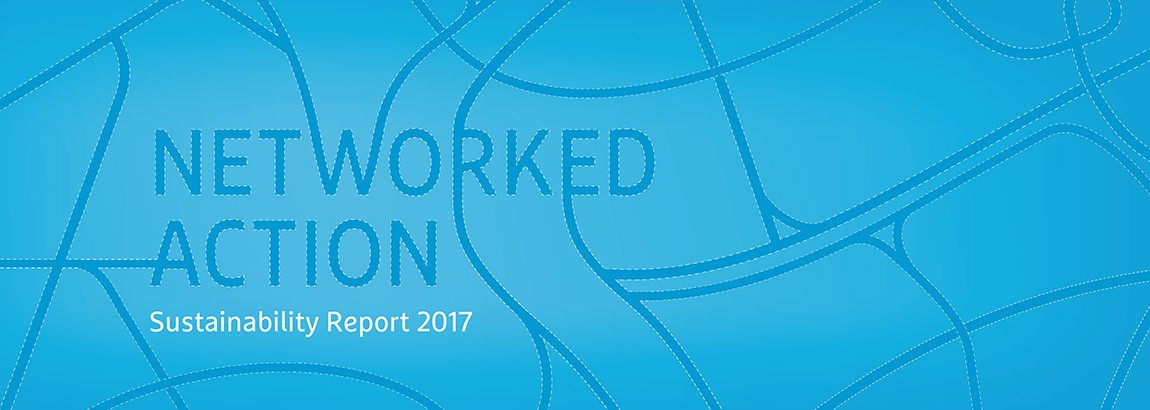About this Sustainability Report
Never before has the logistics industry been so much shaped by change as in the past three years. The ongoing e-commerce boom means that logistics service providers, cities and customers need a serious rethink to be able to ensure reliable, convenient and above all sustainable logistics also in the future. For Hermes, the past three years have brought about increasing challenges as well as trend-setting and necessary changes and activities. And we are looking to use this Sustainability Report to inform our most important stakeholders of these. For the first time, the Sustainability Report will appear in an online format.
Target group
This Sustainability Report is aimed at our internal and external stakeholders, in particular our customers, clients, contractual partners and employees on the one hand and politicians, non-governmental organisations, the media and the interested public on the other.
Reporting period
The reporting period covers the 2015, 2016 and 2017 financial years – in other words, the period from 1 March 2015 to 28 February 2018. Since 2013, the key data required for the report have been largely captured on the basis of the calendar year. Exceptions to this have been identified. Deviations have been indicated in the report. This has resulted in a truncated year for 2015, which has to be taken into account when interpreting the key data.
Reporting cycle
Our last report was published in 2015. In 2017 in particular, Hermes set the course for the efficient and responsible management of rising shipment volumes. In 2017, a central milestone for the goal of providing emission-free deliveries in Germany's 80 largest cities by 2025 was also reached. Against the background of these important decisions, we have decided to deviate from the two-year publication rhythm and to include the years 2015, 2016 and 2017 in this report.
Following our new three-year cycle, the next Sustainability Report is expected to be published in 2021.
Reporting framework
Unless otherwise indicated, the contents of this Sustainability Report refer both to Hermes Germany GmbH (HG) – the merger of Hermes Logistik Gruppe Deutschland GmbH (HLGD) and Hermes Transport Logistics GmbH (HTL) in June 2016 – and to Hermes Einrichtungs Service GmbH & Co. KG (HES). Compared to the last report, which also included Hermes UK and Hermes Europe, we have thus focused on the German third-party business market, as this is where the most far-reaching developments can be seen.
The report is based on qualitative data gathered by our specialist departments and the sustainability coordinators, and on key data from the Otto Group's corporate responsibility database.
Reporting guidelines and content
The Sustainability Report is compiled based on the current version of the Global Reporting Initiative (GRI) standards. We are committed to continuously enhancing the transparency of our reporting.
The selection of report content is based on the principle of materiality. The thematic focus of the sustainability report was sharpened on the basis of the materiality analysis carried out. In the context of this, the main CR topics for Hermes Germany (HG) and Hermes Einrichtungs Service GmbH & Co. KG (HES) were identified. Similar to past reports, the sections correspond to the four strategic fields of action promulgated by Hermes in the field of sustainability:
Editorial Note
In the interests of legibility, we generally only use the masculine form in our Sustainability Report, but in doing so address both genders equally.
